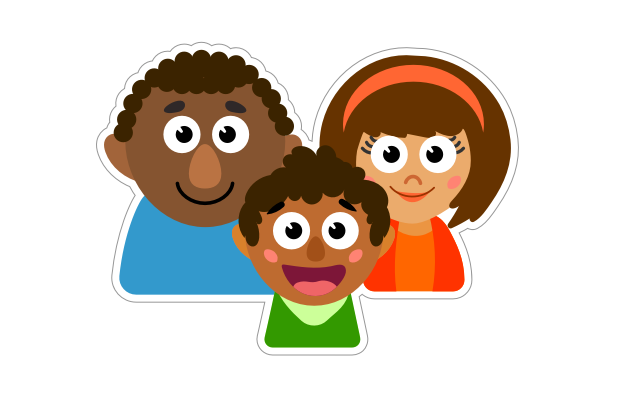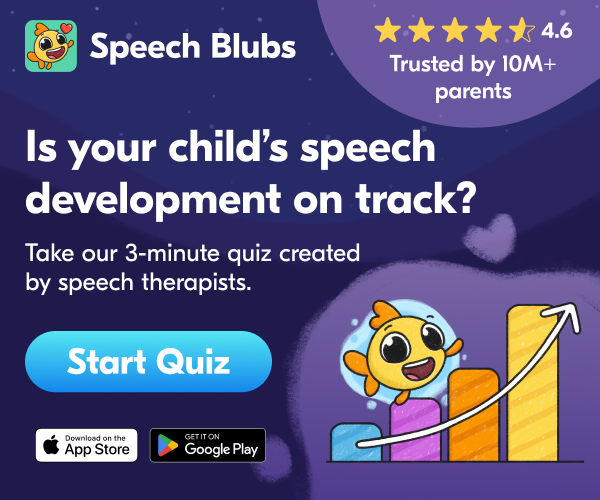Signs Your Child Is a Late Talker
In This Article
- Speech and Language Milestones of Your Baby
- When in Doubt, Talk to Your Pediatrician
- What the Research has shown about Speech and Language Delay . . .
- Early Intervention Is Key
- What Can You Do to Help?
There are several developmental norms that are looked at with regard to speech and language development. These milestones should be discussed by your child’s pediatrician at his/her regularly scheduled appointments.
Please do not panic when you start reading this blog. It’s important to remember that although there are certain items we look at before determining if a child has a language or speech delay, it is important to remember that each child does develop at their own rate.
https://www.youtube.com/watch?v=176mWySZ8U4
Certain factors like gender also play a role (boys develop speech slower than girls). I will break down the speech milestones in chunks of 3 to 6 months in accordance with the typical frequency of visits to the pediatrician. Again, your child may show all of these things, or just a few of these steps at one time.
If you are already planning a visit to your family doctor, read about 25 speech and language terms you need to know to better understand what your doctor or a speech-language therapist will want to discuss with you. But if you are looking for a tool to boost your child's speech development, use the Speech Blubs App!
Speech and Language Milestones of Your Baby
(Based upon How Does Your Child Hear and Talk?, courtesy of the American Speech–Language–Hearing Association.)
By the end of 3 months
Smile when you appear
Make cooing sounds
Quiet or smile when spoken to
Seem to recognize your voice
Cry differently for different needs
By the end of 6 months
Make gurgling sounds when playing or left alone
Babble and make a variety of sounds
Use his or her voice to show happiness or displeasure
Move his/her eyes in the direction of sounds
Respond to changes or tone of your voice
Notice toys that make a sound
Pays attention to music
By the end of 12 months
Tries to imitate speech sounds
Says a few words like “mama,” “dada,” or “uh-oh”
Understands simple instructions like, “come here”
Recognizes words for common objects such as, “shoe”
Turns and looks in the direction of sounds
By the end of 18 months
Recognize the name of common objects, people, and body parts
Follow simple directions with gestures
Says around 10 words
By the end of 24 months
Uses simple phrases, such as “more milk”
Asks 1 or 2 word questions, such as “go bye-bye?”
Follows simple commands and answer simple questions
Speaks about 50 words (or more)
Speaks well enough to be understood at least 50% of the time by you or your primary caregivers
2-3 Years of Age
Has a word for almost everything
Uses 2-3 word phrases to request things
Uses /k, g, t, d, f/ sounds
Speaks in a way that is understood by family and friends
Names objects to ask for them or draw attention to them
3-4 Years of Age
Hears you when you call from another room
Answers simple “who,” “what,” “where,” and “when” questions
Talks about activities at daycare, home, or preschool
Uses sentences with three or four words
Speaks easily without having to repeat syllables or words
4-5 Years of Age
Uses sentences that give many details
Tells stories that stay on topic
Uses rhyming words
Communicates easily with children and adults
Says most sounds correctly except for /s, l, r, v, sh, ch, and th/
Names some letters and numbers
When in Doubt, Talk to Your Pediatrician
If your child has not developed most of these skills by the ages listed above, it’s important that you talk to your pediatrician. They will most likely refer you to an SLP or an audiologist (hearing specialist) to rule out any issues that could be affecting the delayed language. When seen by a specialist, your child might be diagnosed as “speech delayed” or “language delayed.”
These diagnoses are made when there is NO OTHER IMPAIRMENT, such as Autism Spectrum Disorder, Attention Deficit, Down’s Syndrome, etc. present in your child.
Take a free Speech Blubs screener report for a general overview of your child’s speech milestones!
What the Research has shown about Speech and Language Delay . . .
. . . is that children diagnosed with a speech or language delay will catch up to their same-aged peers by 5 years of age, if they are diagnosed early and receive the appropriate interventions as soon as possible.
In fact, approximately 50% to 70% of late talkers are reported to catch up to peers and demonstrate normal language development by late preschool and school age (Dale, Price, Bishop, & Plomin, 2003; Paul, Hernandez, Taylor, & Johnson, 1996).
At its onset, it is difficult to distinguish late talkers from late bloomers, as this distinction can be made only after the fact. However, there is some research to suggest that late bloomers use more communicative gestures than age-matched late talkers who remained delayed (Thal & Tobias, 1992; Thal, Tobias, & Morrison, 1991), thereby compensating for limited expressive vocabularies.
Early Intervention Is Key
Late talkers may be at risk for developing language and/or literacy (reading and/or writing) difficulties as they age. This is more likely if the child does not receive the appropriate interventions and services.
Research has shown that when speech and language delay has been diagnosed, it may also be an early or secondary sign of disorders such as: specific language impairment, social communication disorder, autism spectrum disorder, learning disability, attention deficit hyperactivity disorder, intellectual disability, or other developmental disorders.
In order to make an accurate diagnosis, it is critical to monitor the global development of a child in domains that include, but are not limited to, cognitive, communication, sensory, and motor skills (ASHA 2018).

What Can You Do to Help?
In the meantime, there are several things you can do to help your child learn language in the home environment. These things may include:
- Read to your child for at least 5 minutes a day. Start this practice when they are around 6-8 months and can sustain attention enough to look at the book.
- Narrate what is going on in your day. Tell your child what you are doing in basic, easy language. If you are cooking, say things like, “mommy is stirring the soup,” or “I got the milk.”
- Model the correct language and don’t imitate “baby talk.” Your child learns language by watching and listening to you, so you need to make sure that when you imitate your child, you also give them the correct word. An example of this is when they say “ba-ba” for bottle.” Make sure you say, “Yes, you want your bottle,” not – “You want your ba-ba.”
- Keep a diary of your baby’s speech milestones. This way you will be up-to-date to any changes. You will also be able to talk to your pediatrician in detail about any development questions you may have.
- Try Speech Blubs. The app offers you a fun educational option to repeat words with your little one!
My daughter is almost 2, she started playing with Speech Blubs a few months ago. I can say she now knows a fair few words, could say roughly 250-300. Her alphabet, counting, shapes, colors, basic words (mum, dad, nan, etc.), words that are in songs that she sings, words for objects that she sees around, animals, animal noises, she knows the words for food and drink items, characters she sees on TV or in books, and a lot more. Sometimes you don’t realize how many words they actually know until you really look into it.
Shannon, IG
Stay tuned to Speech Blubs for another blog about how to create a language-rich environment in your own home and contact us if you have any further questions or concerns!
 By Stacie Bennett
By Stacie Bennett

